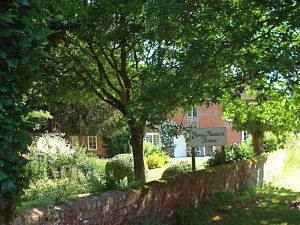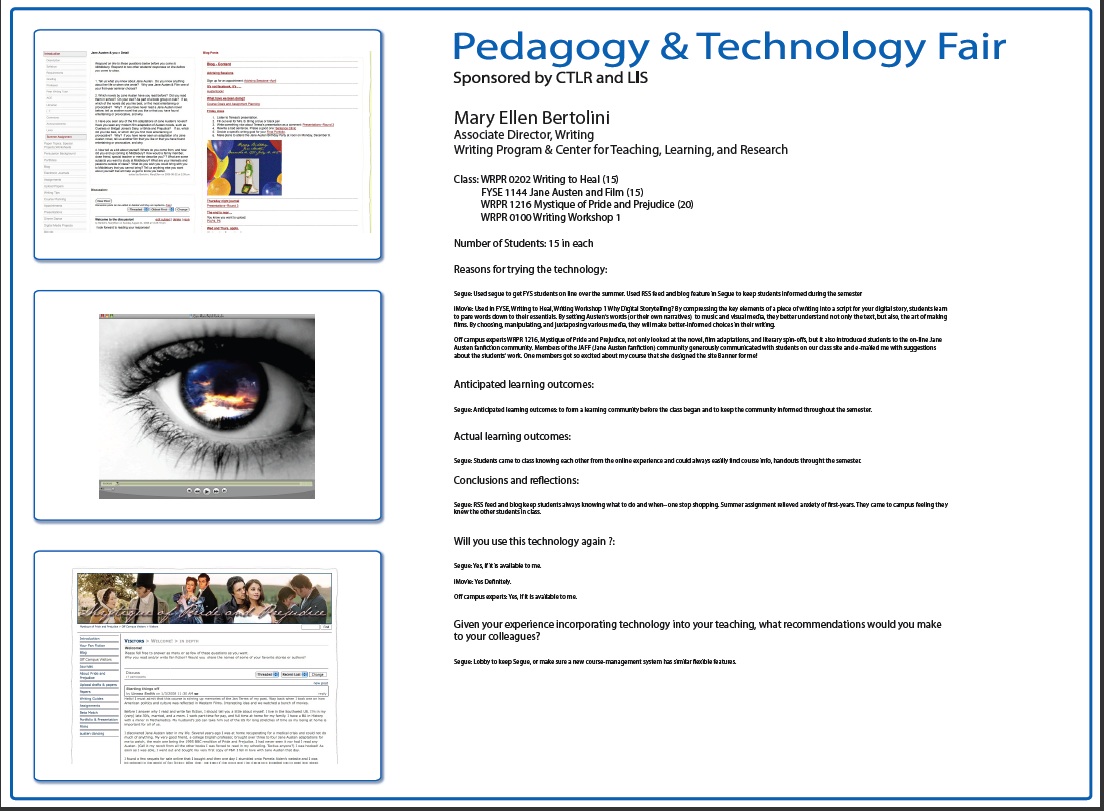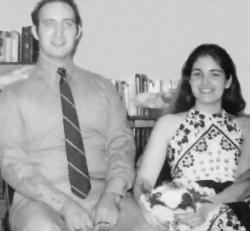Think like a reader, writer, and teacher.
Fifty years ago this September, I stepped into a high school English class and attempted to teach writing. I am going to tell you a secret that I wish someone had told me 50 years ago when I was so afraid of making a mistake that I carried a pocket dictionary every time I walked into a classroom. Here is the secret: You already know more than you think you know. So, take a deep breath, and concentrate on three main things: You as a reader, you as a writer, and you as a teacher.
Be a reader.
Start with yourself. Think about what you value in writing, any writing. Before you are a professional, you are a reader. Write for about three minutes about what is important to you as a reader. If you are with others, discuss with a few people, and then share with a larger group. You have just defined some writing goals for your students. You will need to have general writing goals and then particular writing goals for the class you are teaching and for the assignment you are giving. Goals for a first-year class can be more general than goals for a second or third year class, which is going to reflect readings and protocols in your discipline. Your goals for your first assignment and your second or third papers, also, should be different because you want to increase the difficulty or complexity of your assignments.
None of these goals matter unless you communicate them. Your students are not on the psychic hotline with you. It is unlikely they will magically sense what you consider important unless you communicate with them. When you convey this information—whether through speaking or writing—and the best approach is through speaking and writing, you are modeling good communication skills. Writing is communication between one mind and another. Writing is the conduit, which makes the ideas of one mind transparent to another mind. Whether what is in one of those minds is worth communicating or not is something, we will have to consider.
Be a reader is important when you are setting your goals, and it is important when you read your students’ papers as a reader. When I do not understand what a student has written. I write, “I don’t understand.” “I’ve lost the thread of the argument.” Or, “Do you have evidence to back up this point?” or “What is the point?” I always respond to papers as a reader. I also respond as a writer—“You might try so and so,” and as a teacher “Remember, we discussed xyz in class.” Nevertheless, responding as a reader comes first. Transparency and clarity in writing are two of my biggest goals. My college acting teacher used to say, “If you are going to make a mistake, make it big enough for me to see it.” How can I begin to help a student if I do know what the student understands?
Be a writer.
You know you need to communicate your writing expectations, yes, but you also need to be aware of yourself as a writer—to think about your own process. In order to teach writing, you need to think about how youwrite. How you revise. How you move from an idea to publication. How might that process vary from project to project? Think about your own writing process, and if you are with others, share your thoughts with them. What did you learn about yourself or the process of others? When you think about your process, you are really thinking about how you manageyourself as a writer.
How do you help your students have a process? You can talk to your students about your own process—how you manage yourself as a writer. How you break down your process. You can be honest, and admit that writing is messy and hard. Thank about what resources you have. Consider what resources your students have. Do you direct them to the Writing Center to the Library, to other support services?
Teaching your students to manage themselves, as writers, is one of the most important things you can do in helping them become better writers. Not always, but frequently, the paper your students hand you is a first draft—or not even that—what I call a discovery or exploratory draft. They are thinking, “What do I know about this subject?” Rather than thinking, “How do I communicate what I know to another person?” Consider how much time you give your students to write. Is it enough? Do you budget a week for every 5-7 pages you assign? When I teach a writing course, my students write three drafts of every paper. Along the way, they receive feedback from their peers, peer writing tutors, and from me—a process that spans several weeks. This has worked beautifully, but it may not be realistic for you in your course. So, I invented the 30-minute writing process, which I will unveil shortly.
Be a teacher.
Do you remember the old question, “What are the three most important things in real estate?” The answer, of course, is “Location. Location. Location.” Your location is your classroom, or your office or your desk. Whatever you do, face to face conveys importance. So, use the classroom, or your office to convey your expectations, to share writing management, to discuss the assignment. To say what it is your students need toknow to complete the assignment. Here is the 30-minute writing process: When I give out paper topics, I spend 15 minutes in class discussing the assignment. I might have three or four possible prompts. I discuss each one, discuss how a student might approach each one, and discuss what the student needs to know to complete each one. Then I ask students to eliminate one right then, to draw a big X through that topic. I ask them to spend another 15 minutes of their own time that day or the next day looking at and thinking about the assignment, and choosing one. Even if they never look at that assignment again until the night before the paper is due, it has been sloshing around in their brains for a bit, and they will write a better paper.
You have all heard by now of “Flipping the classroom.” It’s hot. It’s the new thing. Teachers of writing smile “about the “flipped classroom” because we’ve always flipped the classroom. We have always workshopped student work. We do not ask students just to comment on how they like a student paper, and we do not ask peers to fix semicolons. Instead, we workshop student work in a very directed way. To write well, students need to read well and perceptively. This can happen in directed workshops, where students learn first to be readers and editors of each other’s work. I’m always frank with students about the benefits of the workshop—that they will, at first, learn more as a reader/editor of someone else’s work, then as a writer, but soon, they will learn to be perceptive readers of their own work. Maybe you do not have time for that. Maybe your class is too big. You can bring in examples of opening paragraphs from a previous class and discuss. Or before your students hand in their own work, you can ask them to read their own papers silently in class—and make changes.
As a teacher, you should be asking yourself, why you are assigning a paper. What is the point? Is it to know if your students understand the content? Is it to see if they can use concepts you have taught them on new content? Is it to apply theories to new situations? To recognize and understand the research knowledge in the field? Is it to use key terms or theories in your disciple? If you cannot answer these questions, or if you are not conveying this—how can your students write well? As a teacher, you have to answer these questions:
- What do your students have to know or understand before they write?
- How well do your students understand your content?
- How well have you taught them about this subject matter before they write?
Two experiences molded me as a teacher before I taught writing to college students. First, before Middlebury, I taught in suburban, rural, urban, and inner city high schools, and I attended a private high school—all, vastly different experiences. When I taught English in a NYC high school, I taught 150-200 students a semester. When I began teaching at Middlebury, I knew my students had had vastly different educational experiences before they arrived at Middlebury. I have tried hard not to make assumptions about what they know or do not know, and I have sought to normalize what they knew or did not know. I often introduced a skill with the words, “As you may have already learned or not.”
Second, for five years, I was “just” as a stay at home mom. Those five years taught me more about teaching than I learned from any book, or that I learned in the other 45 years of my teaching life. My two same gender children, from the same gene pool, learned completely differently. One remembered most what she saw. The other remembered most what she heard. One wanted to learn with me sitting next to her. The other wanted to try things on her own. Because students learn differently, I have tried to teach a variety of ways. I create opportunities for students to listen, to read, to write, to speak, to act. I encourage students to share things with others, and to try tasks own their own. I share important instructions in class, on paper, and online on a course website. Always, I direct students to resources. What you might change in the way you teach writing? Take a few minutes to write or think about this. For now, keep this information just for you.
Finally, what have I learned most in 25 or 50 years of teaching writing?
Humility, Patience, and Faith
- Humility: You cannot teach everything there is to teach about writing from one paper. You cannot even do it in one course. You are one stop—one important stop— on a writer’s journey. Many people set your student on this path, some well, some not so well, but you are not the only one.
- Patience: not only with your students but, also, with yourself. Take the time to know what you expect, and spell that out. Respect where your students are in their writing journeys. Give your students good directions. Take the time to prepare your students. Give your students enough time to write well and to revise– week for every 5-7 pages, and throw a weekend in there. Give your students support, and direct them to the Writing Center, Learning Resources, and the Library for more support.
- Have Faith: pass your students on to the next stop in their writing journeys, and have faith that the next person on that journey will care as much about your students’ writing lives as you do.
Mary Ellen Bertolini


